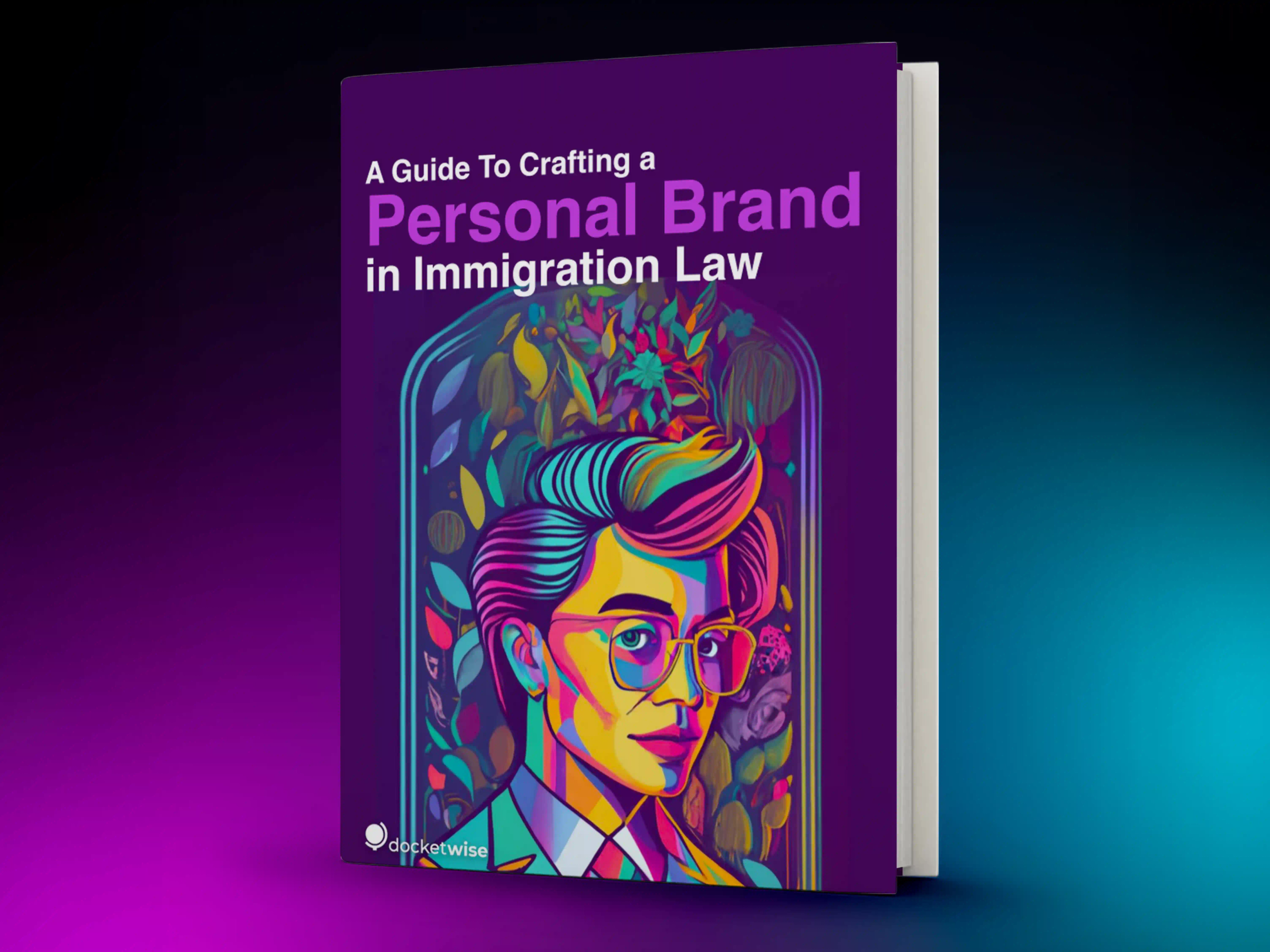In immigration law, referrals are welcome and, at times, the ideal strategy. More generally, referrals help grow your client base and, by extension, your professional network, while providing clients with a more compelling experience by putting their case in the hands of perhaps a more qualified lawyer given their needs.
That being said, referrals come with rules that, whether you are referring to another immigration lawyer or receiving a referral from one, you need to be aware of and follow carefully. And rules about referrals can sometimes be confusing, especially if you’re a new attorney and haven’t done many referrals, or any at all.
This article dives into referrals for attorneys and non-attorneys.
General rules for attorney referrals
There are two sets of rules that govern referrals for immigration lawyers: the state bar rules and federal rules. For purposes of this article, we’re going to examine federal rules, since state rules tend to vary (and you should check your state’s rules and regulations around referrals).
At the federal level, rules about referrals are often modeled after the American Bar Association’s own model rules, specifically 1.5 (e), 5.4 (a), and 7.2 (b).
Model Rule 1.5: Fees
Model Rule 1.5 refers to fees and outlines explicitly under what circumstances lawyers in different firms can split a payment. In short, how a fee is divided between lawyers in other firms when working on referrals has to be proportional to the work each lawyer does - which means that, at times, an even 50-50 split may not be appropriate. The client has to agree on how fees will be split and has to confirm that agreement in writing, and the payment itself must be “reasonable.” which means that, for example, you cannot raise a rate on a client just because you’re referring them to another lawyer.
So, if you’re going to work with another attorney on a case, explain to your client why this is needed and how the other lawyer will possibly help their case outcome to ensure they understand what they’re agreeing to when they sign off on the referral.
Model Rule 5.4: Professional Independence of a Lawyer
Model Rule 5.4 refers to the professional independence of a lawyer. Section A of this rule refers to how lawyers should share fees with nonlawyers. The bottom line is that lawyers cannot share fees with nonlawyers unless payments are disbursed to a lawyer’s estate, a nonprofit organization that the lawyer worked with or recommended, or a firm’s retirement plan. So when it comes to payments to nonlawyers, there are rules set up to allow for indirect payments in some circumstances, but not many, which limits the possibilities for referring to nonlawyers with proper compensation.
Model Rule 7.2: Communications Concerning a Lawyer's Services: Specific Rules
Model Rule 7.2 regulates communication about a lawyer’s services and to what extent they can pay others to recommend them, with section (b) explaining how lawyers can pay others for telling others about the lawyer’s services. Rule 7.2 explains that lawyers cannot make promises outside of the scope of their profession, and that lawyers may thank referrals with tokens of appreciation proportional to the work performed and what would be reasonable as a gift in professional relationships. Gifts should not be equivalent to compensation for services.
Applicable rules regarding paying for referrals depend on the nature of the professional practice of the referral: lawyers and non-lawyers. Let’s review the rules for paying for referrals to lawyers first.
Rules for paying referral fees to lawyers
The first thing to consider when referring to other lawyers, and paying fees, is that, as an immigration lawyer, you can only refer to other competent lawyers. It is your responsibility to ensure that if you bring another immigration lawyer on board for a case, that lawyer has the knowledge and expertise to help you and your client effectively. In addition, given that you need your client’s consent in writing to proceed with the referral, you must assure them their case is in better hands by referring them to another lawyer for part or all of the case.
In summary, rules for referring cases to lawyers include:
How you and the other lawyer divide fees has to be “proportional.” Many lawyers find this rule challenging to interpret, as “proportional” doesn’t necessarily mean “equal.” What this means is that you don’t necessarily have to split fees 50-50; if the work performed doesn’t represent half of what you would charge in that case typically, then it’s not proportionate, and you and the referred lawyer can agree on what proportional means in your referral agreement.
Your client has to agree to the referral in writing, not just to the referral itself, but also to the work the referred lawyer will complete and how much of the client fee they will receive.
The total fee you charge has to be reasonable.
When you refer work to another lawyer, remember that you’re liable for malpractice claims. Given this, it’s also important to outline in your referral agreement what responsibilities, in addition to working on the case, the referred lawyer will have concerning the case. For example, if you’d like the referred lawyer to provide periodic updates to the client on the part of the case they’re working on, make sure your client knows those updates will come from the referred lawyer.
Next, let’s examine the rules for paying non-lawyers referral fees.
Rules for paying referral fees to nonlawyers
The rules regarding nonlawyers are a bit more straightforward. Basically, you cannot pay referral fees to non-lawyers. It’s also important to remember that lawyers licensed out of the state are considered “nonlawyers” in some states, such as Florida. So if you’re thinking about referring to a lawyer out of your state, you may have to treat them as nonlawyers in your referral agreement, depending on your state bar’s rules.
However, there are other ways to show appreciation for a nonlawyer you refer a case to or otherwise get help from. Here are some ideas of how to thank nonlawyers for their work on a case:
Handwritten cards or letters. Always keep a set of stamps and blank thank you cards in hand to write these notes by hand and put them in the mail or, with email and digital messaging being a more prevalent form of communication, send a virtual thank you.
Gifts. Rule 7.2 on the ABA Model Rules of Professional Conduct says you can give reasonably priced gifts. A new car, for example, is probably not such a gift, and if you’re looking for gift ideas and run into an item that makes you wonder if the recipient may see it as unreasonable, that could be a good measure of something not being reasonable.
Special events. You could put together a game or movie night, hire a food truck and invite your referrals for lunch, dinner, a treat, or a gathering of your professional network. This could provide an excellent opportunity for all the professionals in your network, lawyers and nonlawyers alike, to interact with each other and celebrate the great work you have all done through different referrals.
Public expressions of appreciation. Whether you highlight your referrals in your social media, your newsletter, or your website, people appreciate public recognition. It brings more visibility to their business and builds trust between you and them. And naturally, when potential clients see that you know other professionals who can support your work, that enhances their trust in you as well.
Whether referring to lawyers or nonlawyers, always clearly communicate with the professional you’re referring work to, and the underlying client, to ensure the results of the referred work is known. Indeed, referrals are an ongoing strategy to strengthen your professional network and ensure you continue building a track record of success in your immigration law practice, whether you complete cases independently or with support.
Docketwise is the leading immigration case management platform
Whether you’re already referring immigration work to others in your network, or just thinking about it, having the right immigration case management platform to keep track of your clients, cases, and in this case referral partners, is key.
That’s where Docketwise comes in.
With our Customer Relationship Management (CRM) features, entire library of immigration forms, easy-to-use client questionnaires, and industry-leading API integrations, Docketwise helps you stay current on immigration cases, communicate easily with your clients, and otherwise build and manage your immigration law firm.
If you want to learn more about Docketwise, schedule a demo at the link below!
And if you’re looking for more great content in addition to our block, check out our free e-book about building a successful practice, our free online practice management course, and our new podcast, Immigration Uncovered!
Carve Your Niche in Immigration Law
Unlock the potential of your personal brand and set yourself apart in the world of immigration law. Harness the tools, strategies, and insights to become the go-to expert in the immigration law landscape.
Download Now
About the author

James PittmanAttorney & Co-FounderDocketwise
James Pittman is co-founder of Docketwise and was previously engaged in the private practice of US Immigration Law. He also regularly teaches Continuing Legal Education (CLE) classes on immigration law topics and legal ethics. He is admitted to practice in New York and New Jersey and is a graduate of Northeastern University School of Law.
